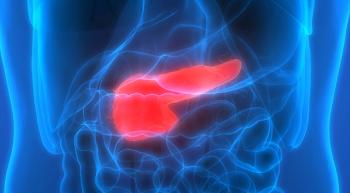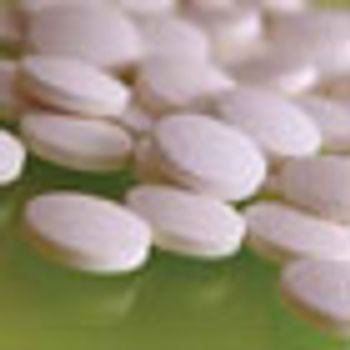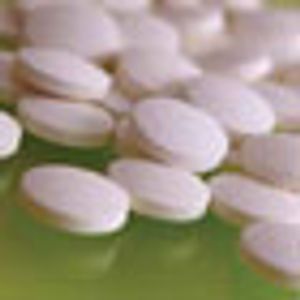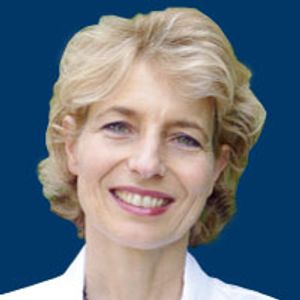
Choosing frontline therapy for patients with metastatic non–small cell lung cancer (NSCLC) who do not harbor an actionable driver oncogene depends upon PD-L1 expression level and histology, according to Gregory J. Riely, MD, PhD.

Choosing frontline therapy for patients with metastatic non–small cell lung cancer (NSCLC) who do not harbor an actionable driver oncogene depends upon PD-L1 expression level and histology, according to Gregory J. Riely, MD, PhD.

Regorafenib (Stivarga) maintained a prolonged overall survival (OS) benefit as second-line therapy for patients with advanced hepatocellular carcinoma (HCC) in a 2-year updated analysis of key findings from the pivotal RESORCE trial.

In a major advance that set a new standard of care for the treatment of patients with resected pancreatic cancer, a modified FOLFIRINOX regimen (mFOLFIRINOX) dramatically improved survival compared with standard gemcitabine as postoperative therapy.

According to a recent study, postmenopausal women with early-stage breast cancer may be at risk of cardiovascular disease from aromatase inhibitor therapy.

Researchers in France have found that patients with lung cancer who used a web-based app to report and track their symptoms achieved impressive gains in survival compared with individuals who were followed using standard protocols.

The 3-year survival rate of patients with advanced melanoma treated with pembrolizumab (Keytruda) has reached 40%, with many responders in remission even after stopping treatment.


A nomogram calculates the risk of ipsilateral breast tumor recurrence after breast-conserving surgery.

Bright Pink's Women's Health Provider Education program is designed to address gaps in knowledge of young women's genetic cancer risk.

The CD38 monoclonal antibody daratumumab in combination with lenalidomide and dexamethasone proved to be safe and showed an 81% response rate in patients with relapsed or refractory multiple myeloma, according to research presented at the 2015 ASH Annual Meeting.

The FDA's calendar for making decisions on new oncology drugs and indications is taking shape for 2015, and the clock is ticking on at least 13 applications for novel agents and new therapeutic settings for existing drugs.

A growing understanding of the biological pathways at work in the development of oral mucositis in patients treated with cytotoxic cancer therapies has helped spur interest in steering symptom management away from "institutional folklore" rinses and anecdotal approaches toward evidence-based strategies

Five novel agents for the treatment of patients with advanced squamous cell carcinoma of the lung will be evaluated in the recently launched Lung-MAP trial, an innovative biomarker-driven study that aims to improve the drug development process while exploring therapeutic options for this challenging malignancy.

Published: January 23rd 2015 | Updated:

Published: December 8th 2015 | Updated:

Published: March 11th 2016 | Updated:

Published: March 31st 2016 | Updated:

Published: April 15th 2016 | Updated:

Published: May 19th 2016 | Updated: